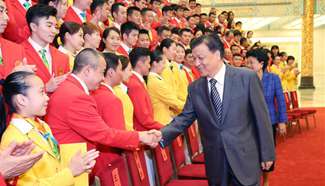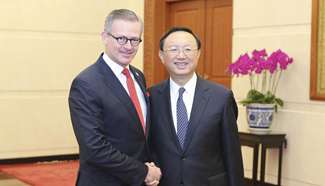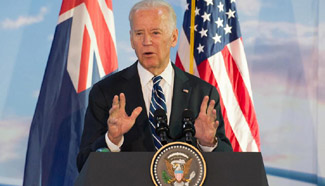|
SINGAPORE, July 18, 2016 (Xinhua) -- Photo taken on July 18, 2016 shows the Think Tank Seminar on South China Sea and Regional Cooperation and Development held in Singapore. Organized by the Institute of Chinese Borderland Studies, Chinese Academy of Social Sciences, the seminar attracted more than 20 experts from academic institutes in China and countries in the region, including Singapore, Indonesia, Malaysia and India. (Xinhua/Then Chih Wey) |
by Zhang Ning, Lin Hao
SINGAPORE, July 18 (Xinhua) -- The so-called South China Sea arbitration award will not hamper cooperation between China and the members of the Association of Southeast Asian Nations (ASEAN), experts said here on Monday.
The ad hoc arbitral tribunal in the South China Sea arbitration, set up at the unilateral request of the former Philippine government, last Tuesday issued an ill-founded award sweepingly sided with Manila, denying China's long-standing historic rights in the South China Sea.
China has refused to participate in the proceedings, reiterating that the tribunal has no jurisdiction over the case, which is in essence related to territorial sovereignty and maritime delimitation, and has also made clear that it neither accepts nor recognizes the award and the award "is null and void and has no binding force."
China has also reaffirmed that it will continue to endeavor to peacefully resolve disputes in the South China Sea with parties directly concerned through negotiation and consultation on the basis of respecting historical facts and in accordance with international law.
Nearly one week after the so-called award was rendered, more than 20 experts on international law and foreign relations from academic institutes in China and Southeast Asian countries including Thailand, Cambodia and Malaysia convened here Monday for the Think Tank Seminar on South China Sea and Regional Cooperation and Development, which was organized by the Institute of Chinese Borderland Studies, Chinese Academy of Social Sciences.
In a keynote speech at the seminar, Zhao Qizheng, former minister of China's State Council Information Office, reiterated that the ad hoc arbitral tribunal has no jurisdiction over the case.
Zhao said the Philippine tax payers' money was used for a pile of waste paper, blasting the tribunal for "taking big money to do dirty things" and describing its proceedings as "amateurish and unsightly, null and void."
Zhao's remarks were echoed by attendees, who also agreed with Zhao that the disputes can only be settled through dialogue and by deepening China-ASEAN ties.
Kong Lingjie, vice dean of China Institute of Boundary and Ocean Studies, China's Wuhan University, criticized the so-called arbitration, branding it as "a bold interpretation and ambitious development of article 123(1) of the United Nations Convention on the Law of the Sea (UNCLOS).
"The most absurd ruling was on the Taiping Island's status as a rock," said Kong, adding that the ruling would deny most of the Nansha Islands' rights to exclusive economic zones.
In this case, Kong said, the arbitration violated the international law and fabricated "an illegal definition of the distinction between islands and reefs."
Experts at the seminar also voiced support for the notion of bringing concerned parties involved in the South China Sea issue back to the negotiating table.
Zheng Yongnian, director of the East Asian Institute, National University of Singapore, said he believes that China and the Philippines should start the dialogue process to solve the dispute.
"It is not true that a great power has been bullying small countries," Zheng said, noting that certain countries in the region kowtow too much to the United States.
Zheng suggested that China and other concerned parties over the South China Sea issue could firstly initiate cooperation in maritime rescue efforts, fishery and protection of maritime resources.
At the one-day seminar, experts, in addition, all agreed that the arbitration would not impede the cooperation process between China and the ASEAN countries.
Li Guoqiang, deputy director of the Institute of Chinese Borderland Studies, told Xinhua in an exclusive interview on the sidelines of the seminar that there lies a huge potential for the development of China-ASEAN ties.
"With the strategic opportunity produced by China's 21st Century Maritime Silk Road initiative, the two sides are planning to upgrade their free trade agreement," Li said.
Zhao Qizheng, meanwhile, underscored the fact that China became ASEAN's biggest trade partner in 2009.
He said that despite the difficulties, including territorial disputes, the intervention of countries outside the region and the not well-established cooperation mechanism, the communication and cooperation between China and the ASEAN members has never ceased and has brought great benefits to all countries.
"It is beyond doubt that maintaining regional peace and stability, and keeping the momentum of cooperation and development is in the best interest of all," Zhao said.












